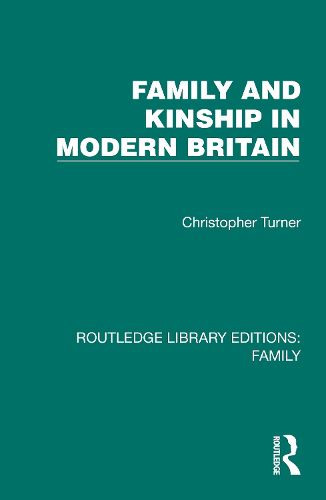Readings Newsletter
Become a Readings Member to make your shopping experience even easier.
Sign in or sign up for free!
You’re not far away from qualifying for FREE standard shipping within Australia
You’ve qualified for FREE standard shipping within Australia
The cart is loading…






In the 1960s the family had been described as 'by far the most important primary group in society'. The primary concern of the sociologist was to understand the functioning of family life in any given society and to set his observations in the wider framework of the relation of kinship systems to social structures. In this study, originally published in 1969, Dr Turner's aim was to present a conceptual scheme for the analysis of family and kinship in modern Britain at the time. However, in doing so, he was able to use the particular example to illustrate general principles of the analysis of kinship. But the family is not a static entity and the author's approach to his subject is processual. He views the family both as an entity passing through a cycle of development and decline and also as an element in an ever-changing social structure.
This study is necessarily inexorably linked with other aspects of sociology: with class, education, socialization, occupation and many other topics.
$9.00 standard shipping within Australia
FREE standard shipping within Australia for orders over $100.00
Express & International shipping calculated at checkout
In the 1960s the family had been described as 'by far the most important primary group in society'. The primary concern of the sociologist was to understand the functioning of family life in any given society and to set his observations in the wider framework of the relation of kinship systems to social structures. In this study, originally published in 1969, Dr Turner's aim was to present a conceptual scheme for the analysis of family and kinship in modern Britain at the time. However, in doing so, he was able to use the particular example to illustrate general principles of the analysis of kinship. But the family is not a static entity and the author's approach to his subject is processual. He views the family both as an entity passing through a cycle of development and decline and also as an element in an ever-changing social structure.
This study is necessarily inexorably linked with other aspects of sociology: with class, education, socialization, occupation and many other topics.